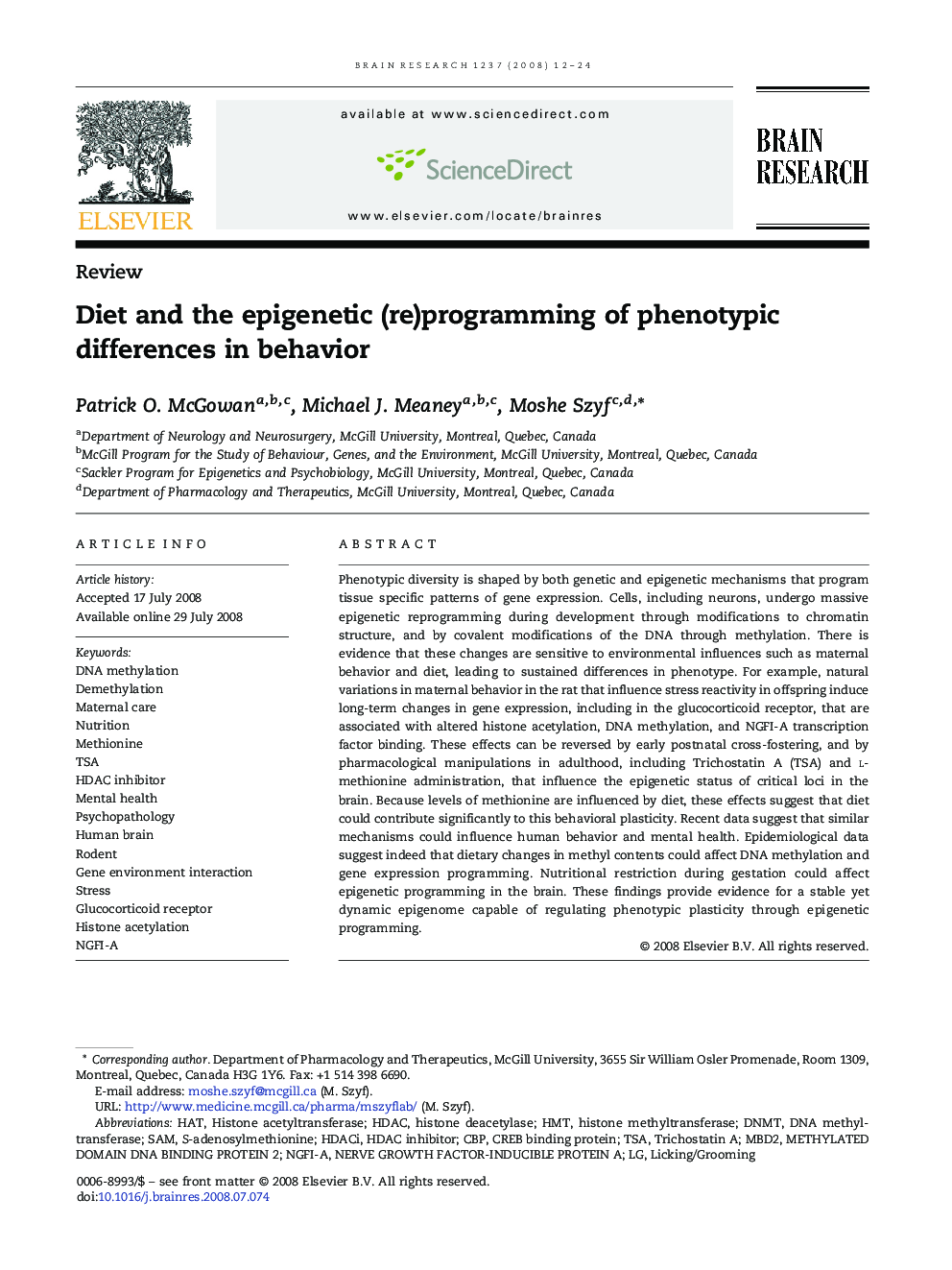| Article ID | Journal | Published Year | Pages | File Type |
|---|---|---|---|---|
| 4329251 | Brain Research | 2008 | 13 Pages |
Phenotypic diversity is shaped by both genetic and epigenetic mechanisms that program tissue specific patterns of gene expression. Cells, including neurons, undergo massive epigenetic reprogramming during development through modifications to chromatin structure, and by covalent modifications of the DNA through methylation. There is evidence that these changes are sensitive to environmental influences such as maternal behavior and diet, leading to sustained differences in phenotype. For example, natural variations in maternal behavior in the rat that influence stress reactivity in offspring induce long-term changes in gene expression, including in the glucocorticoid receptor, that are associated with altered histone acetylation, DNA methylation, and NGFI-A transcription factor binding. These effects can be reversed by early postnatal cross-fostering, and by pharmacological manipulations in adulthood, including Trichostatin A (TSA) and l-methionine administration, that influence the epigenetic status of critical loci in the brain. Because levels of methionine are influenced by diet, these effects suggest that diet could contribute significantly to this behavioral plasticity. Recent data suggest that similar mechanisms could influence human behavior and mental health. Epidemiological data suggest indeed that dietary changes in methyl contents could affect DNA methylation and gene expression programming. Nutritional restriction during gestation could affect epigenetic programming in the brain. These findings provide evidence for a stable yet dynamic epigenome capable of regulating phenotypic plasticity through epigenetic programming.
